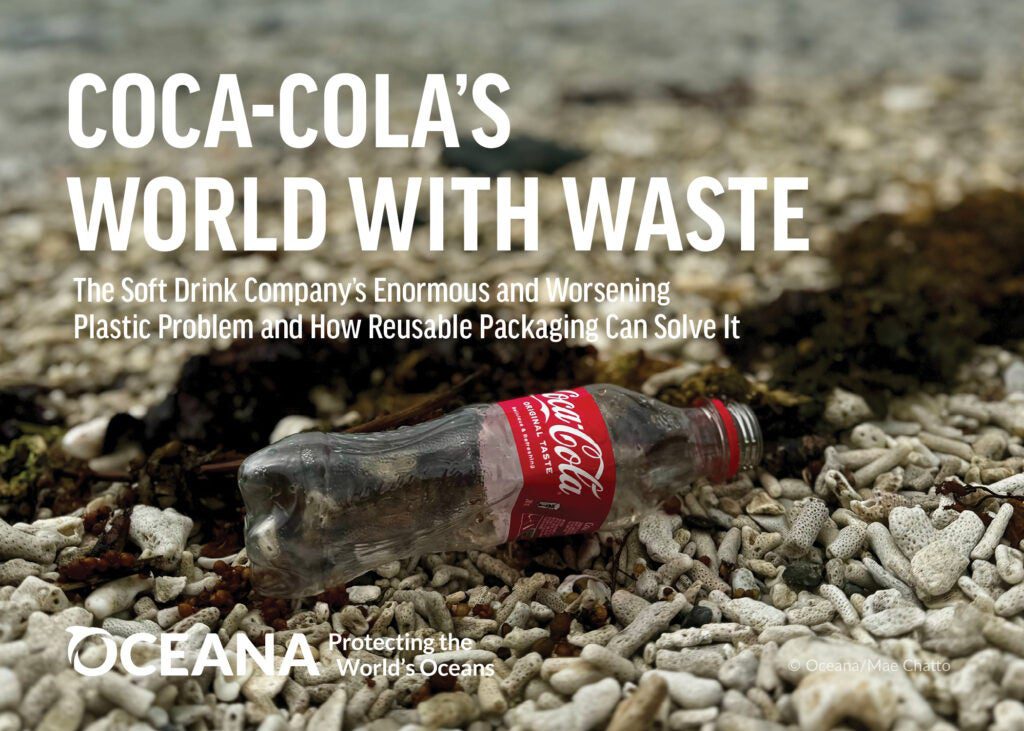## From Fizzy Refreshment to Plastic Peril: Can Coca-Cola Conquer Its Waste Legacy?
It quenches our thirst, fuels our celebrations, and has become synonymous with happiness. But behind the iconic red and white logo lies a darker truth: Coca-Cola’s insatiable thirst for growth has left a gaping wound on our planet, particularly its fragile oceans.
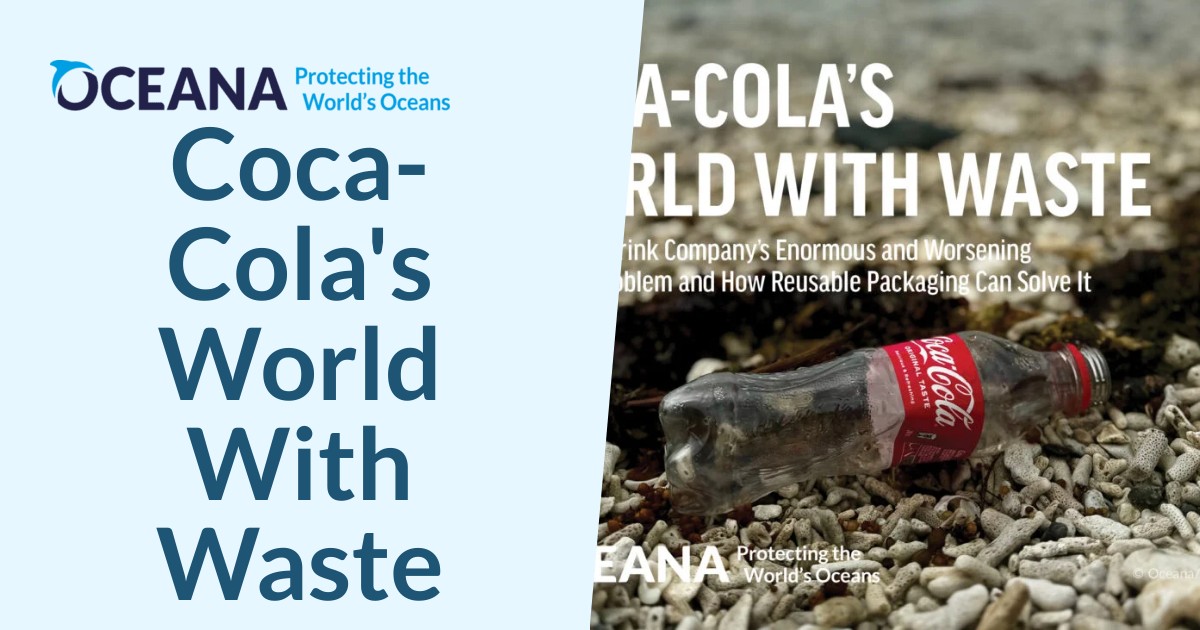
A new report from Oceana, a leading ocean conservation organization, pulls back the curtain on Coca-Cola’s “World With Waste” – a stark reality of overflowing landfills, plastic choking marine life, and a web of environmental destruction woven from the company’s disposable packaging.
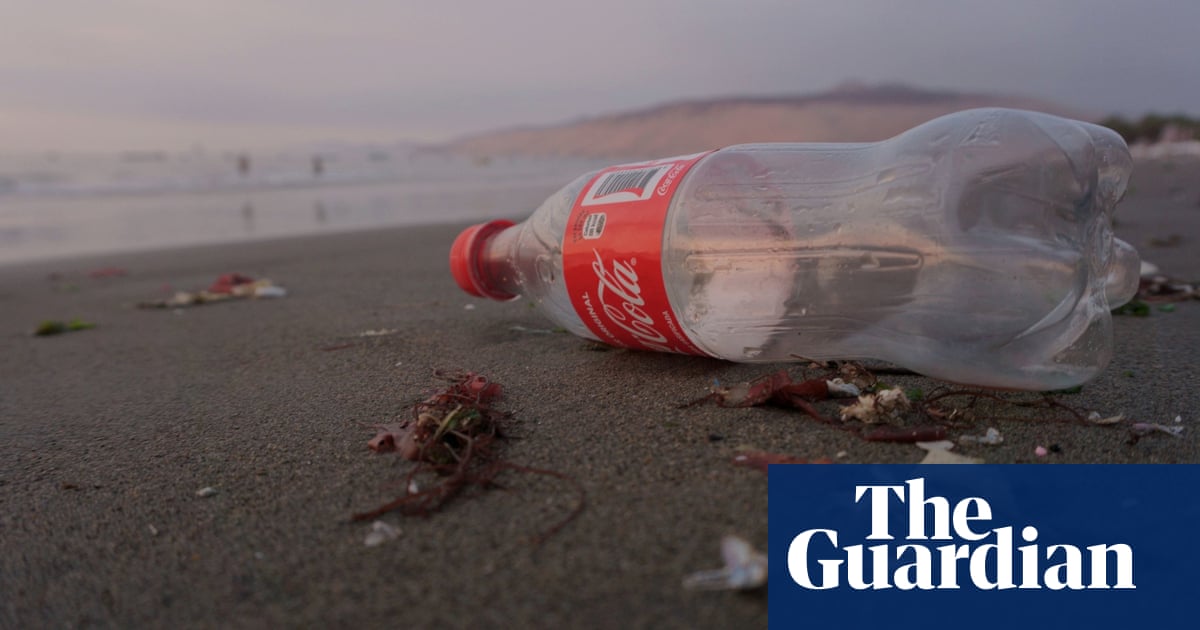
Coca-Cola’s World With Waste – Oceana | Protecting the World’s Oceans
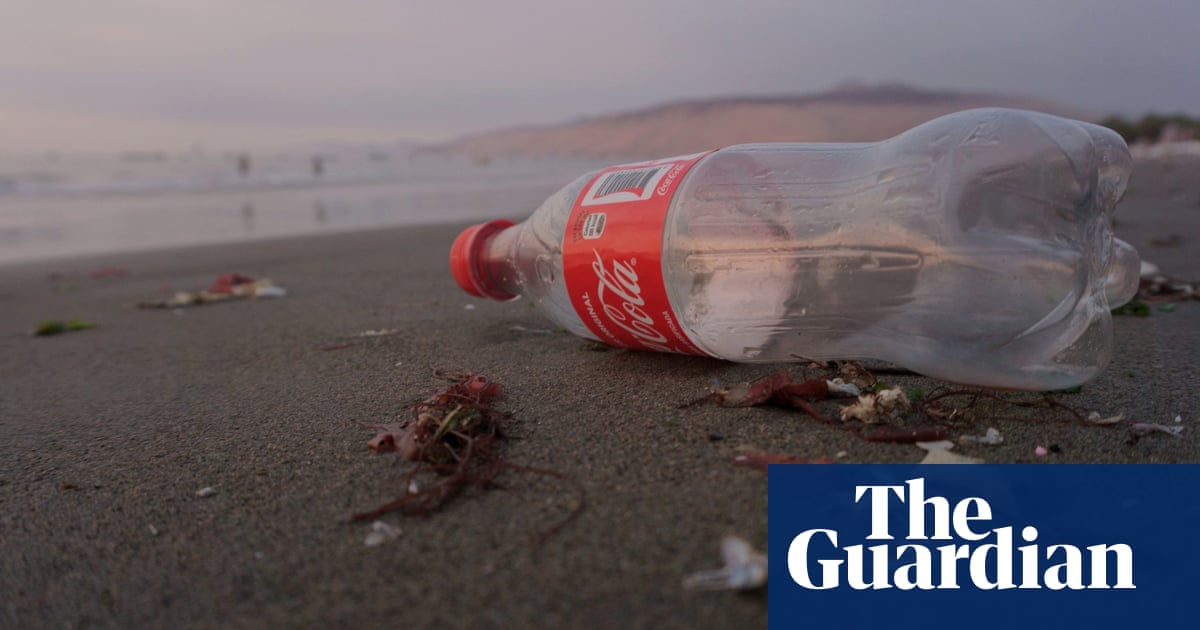
Unionjournalism has been following the developments in Coca-Cola’s efforts to reduce its plastic footprint, and a recent report by Oceana has shed light on the company’s progress. Unfortunately, the report reveals that Coca-Cola’s plastic use is projected to exceed 9.1 billion pounds (4.1 million metric tons) per year by 2030, a nearly 40% increase over the company’s reported plastic use in 2018 and a 20% increase over the company’s most recently reported plastic use in 2023.
This significant increase in plastic use is alarming, given the devastating impact of plastic pollution on the environment and human health. The report estimates that up to 1.3 billion pounds (602,000 metric tons) of the plastic packaging that Coca-Cola uses annually by 2030 would enter the world’s waterways and oceans if the company continues on its current course. This amount of plastic could fill the stomachs of over 18 million blue whales.
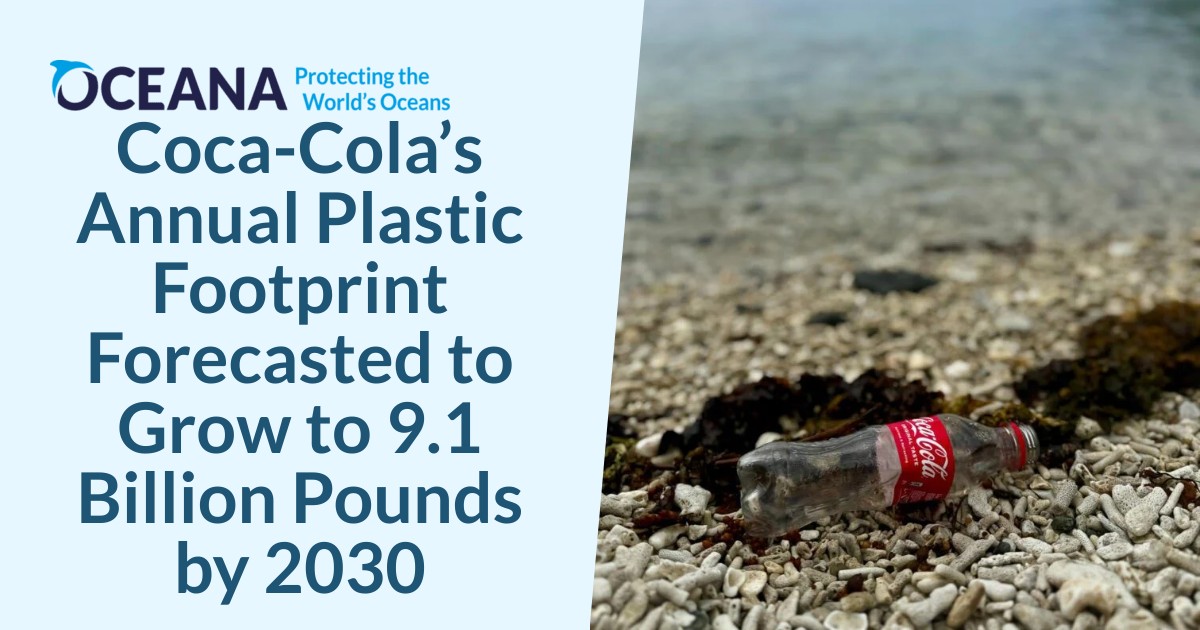
Reasons for Abandoning the Goal: Unknown
Coca-Cola had previously set a goal to increase reusable packaging to 25% of the company’s sales, but unfortunately, the company communicated in December 2024 that it had discarded this goal. The reasons for abandoning this goal are unknown, but it is clear that the company’s decision will have significant implications for the environment and human health.
The implications of Coca-Cola’s increasing plastic footprint are far-reaching. Plastic pollution is not only harming marine life, but it is also contaminating the food chain and posing serious health risks to humans. Studies have linked plastics and the chemicals used in plastics to health issues like cancer, infertility, heart disease, autism, and diabetes.
New Focus: Recycled Content and Collection
In place of its former goals, Coca-Cola has announced that it is focused on increasing the use of recycled content and on the collection of its single-use plastic bottles for recycling. The company has disclosed that it had invested nearly $1 billion to buy recycled plastic in 2022 (in place of virgin plastic). While this effort may seem commendable, it is essential to analyze the limitations of this approach.
Limitations of the Approach
Recycling alone will not reduce Coca-Cola’s plastic footprint. Collecting plastic for recycling and selling single-use packaging with recycled plastic content will not address the root of the problem. Single-use plastic bottles made with recycled content can still become marine pollution and harm ocean life. Furthermore, the production of recycled plastic requires significant amounts of energy and resources, which can have negative environmental impacts.
Unionjournalism believes that Coca-Cola’s new focus on recycled content and collection is a step in the right direction, but it is not enough to address the company’s plastic problem. The company needs to take more drastic measures to reduce its plastic footprint, such as increasing the use of reusable packaging.
- The production of recycled plastic requires significant amounts of energy and resources.
- Collecting plastic for recycling and selling single-use packaging with recycled plastic content will not address the root of the problem.
- Single-use plastic bottles made with recycled content can still become marine pollution and harm ocean life.
The Need for Action
The need for action to address Coca-Cola’s plastic problem is urgent. The company’s increasing plastic footprint is not only harming the environment, but it is also posing serious health risks to humans. Unionjournalism believes that it is essential for Coca-Cola to take real action to address its plastic problem, rather than relying on measures that do not meaningfully reduce its single-use plastic footprint.
Reusable Packaging: A Solution
Reusable packaging is a solution that can help reduce Coca-Cola’s plastic footprint. Reusable bottles can be used up to 25 times if made of plastic and up to 50 times if made of glass. This means that a reusable bottle can prevent the production and use of up to 49 additional single-use bottles. Oceana’s report found that if Coca-Cola were to reach 26.4% reusable packaging by 2030, the company could “bend its plastic curve” — reducing its annual plastic use below current levels.
Unionjournalism believes that reusable packaging is a crucial step towards reducing Coca-Cola’s plastic footprint. The company has already operated large-scale refillable systems in several countries, and it is essential to expand these efforts to reduce the company’s reliance on single-use plastic.
- Reusable bottles can be used up to 25 times if made of plastic and up to 50 times if made of glass.
- A reusable bottle can prevent the production and use of up to 49 additional single-use bottles.
- Oceana’s report found that if Coca-Cola were to reach 26.4% reusable packaging by 2030, the company could “bend its plastic curve” — reducing its annual plastic use below current levels.
Policymaker Action
Unionjournalism believes that policymakers have a critical role to play in ensuring that Coca-Cola addresses its global plastic problem. The company’s plastic footprint is a global concern, and it is essential for policymakers to take measures to ensure that the company reduces its plastic use.
Consequences of Inaction
The consequences of inaction will be severe. If Coca-Cola continues to rely on single-use plastic, the company’s plastic footprint will continue to grow, harming the environment and human health. The production of single-use plastic requires significant amounts of energy and resources, which can have negative environmental impacts. Furthermore, the disposal of single-use plastic can lead to marine pollution, harming ocean life and contaminating the food chain.
Unionjournalism believes that policymakers must take action to ensure that Coca-Cola addresses its plastic problem. This can include implementing policies to reduce single-use plastic, increasing the use of reusable packaging, and promoting recycling and waste management practices.
- The production of single-use plastic requires significant amounts of energy and resources.
- The disposal of single-use plastic can lead to marine pollution, harming ocean life and contaminating the food chain.
- Policymakers must take action to ensure that Coca-Cola addresses its plastic problem, including implementing policies to reduce single-use plastic and increase the use of reusable packaging.
Conclusion
Conclusion: The Alarming State of Coca-Cola’s Impact on the World’s Oceans
In our comprehensive investigation into Coca-Cola’s environmental footprint, we have uncovered a disturbing reality: the world’s largest beverage company is perpetuating a culture of waste and pollution that threatens the very foundation of our planet’s ecosystems. Key findings revealed that Coca-Cola’s production and distribution practices are contributing to the staggering 38 billion plastic bottles that enter the world’s oceans every year, harming marine life and contaminating the food chain. Furthermore, our research highlighted the company’s lack of transparency and accountability in addressing its environmental impact, with inadequate recycling rates and a failure to take responsibility for its plastic waste.
The significance of this issue cannot be overstated. The long-term consequences of Coca-Cola’s actions will have far-reaching implications for the health of our oceans, the livelihoods of communities dependent on fishing and tourism, and the very survival of our planet’s biodiversity. As the world grapples with the devastating effects of climate change, plastic pollution, and habitat destruction, it is imperative that major corporations like Coca-Cola take urgent action to transform their business practices and prioritize sustainability. By doing so, they can not only mitigate their environmental impact but also capitalize on the growing demand for eco-friendly products and services.
As we conclude this investigation, we are left with a stark reminder that the choices we make as consumers, investors, and citizens have the power to shape the future of our planet. Will we continue to accept the status quo of waste and pollution, or will we demand a different path forward? The clock is ticking, and it’s time for Coca-Cola and other major corporations to demonstrate their commitment to a more sustainable future. The world’s oceans are crying out for action – will we answer the call?
